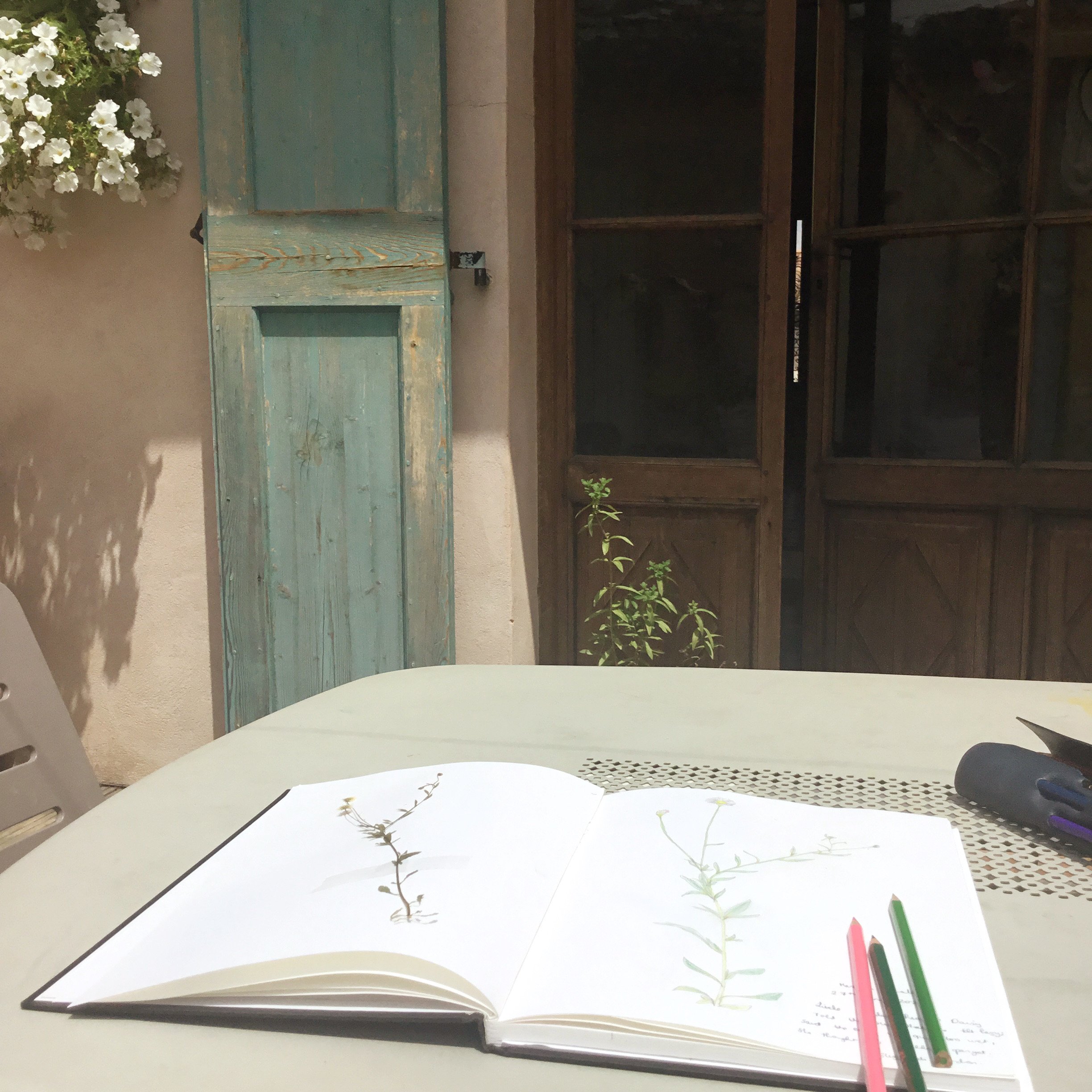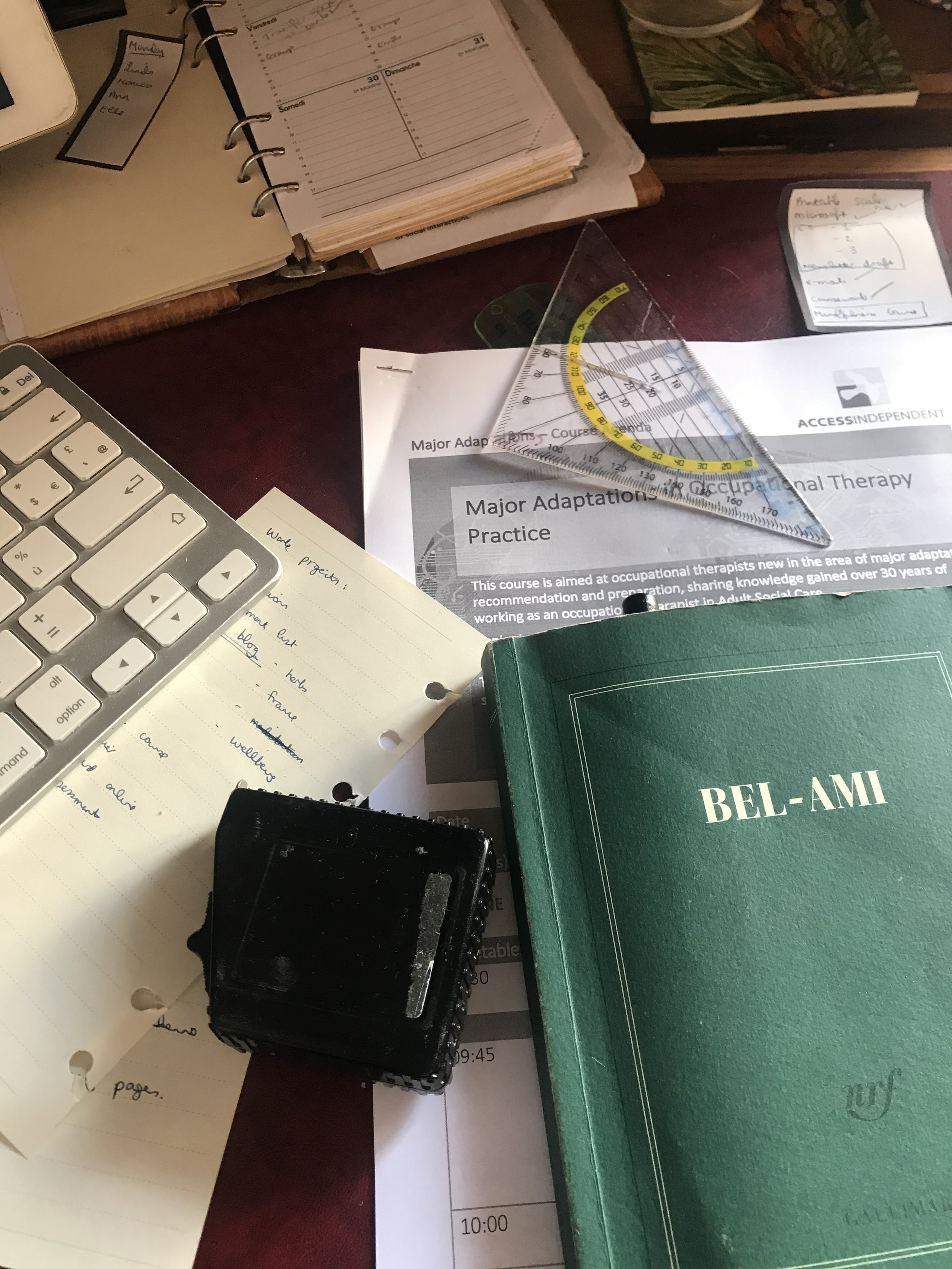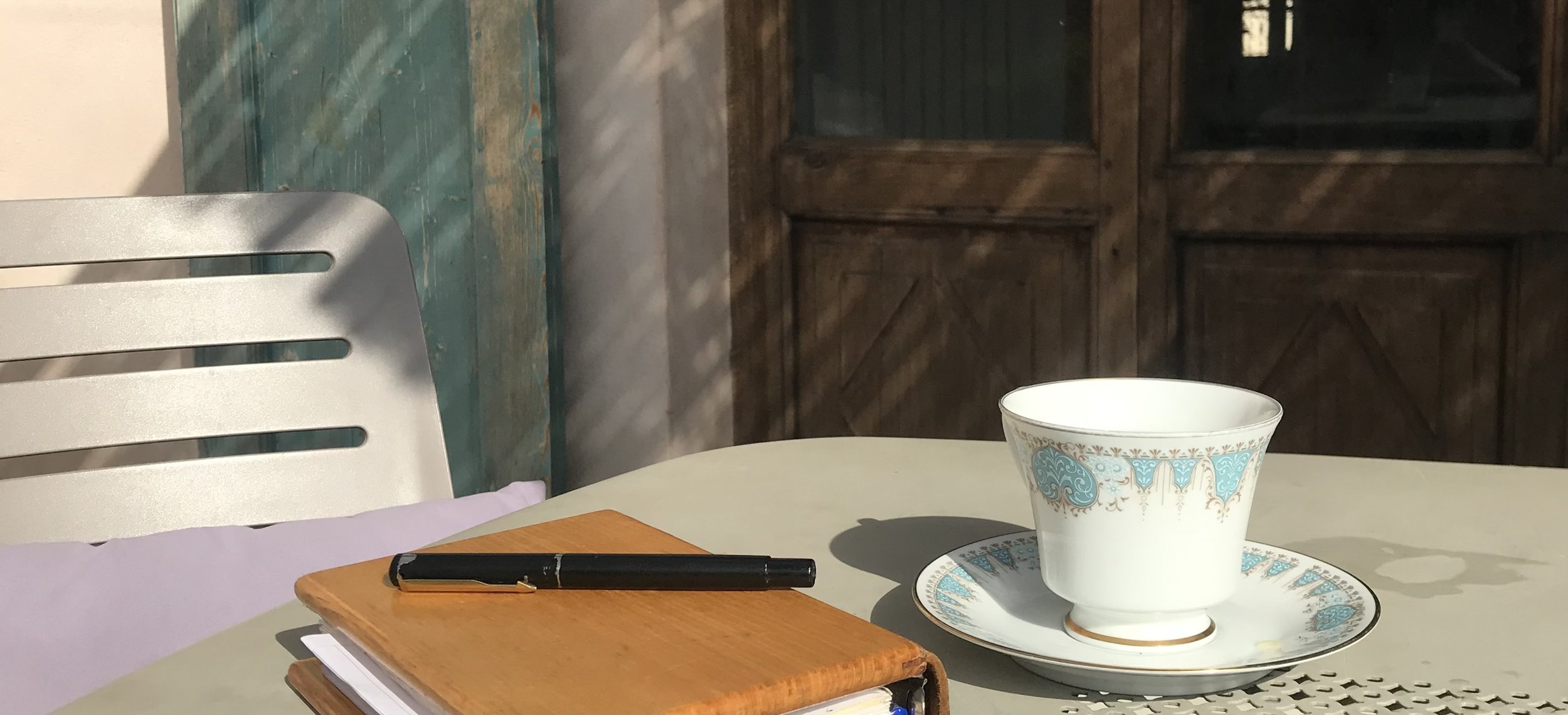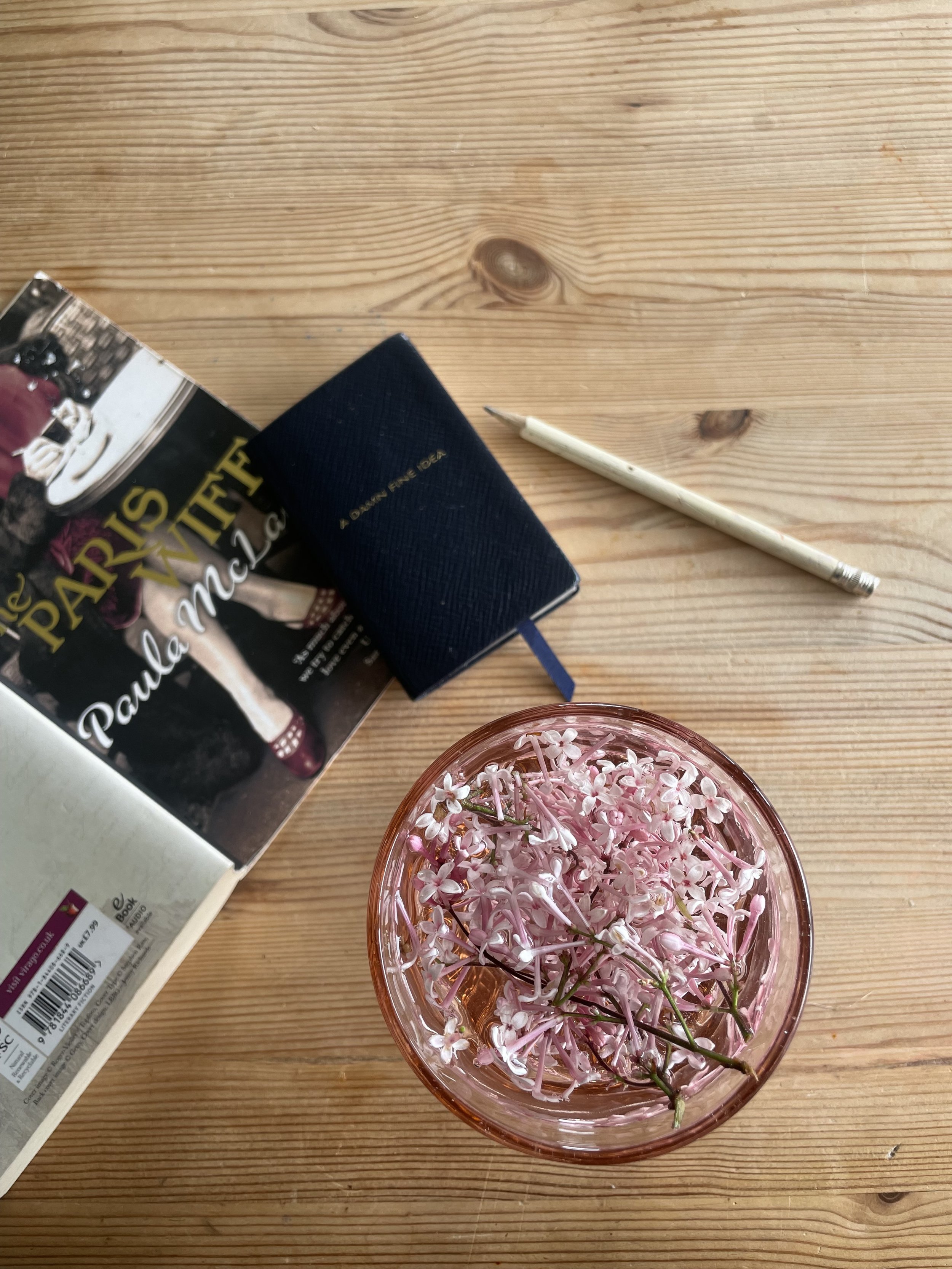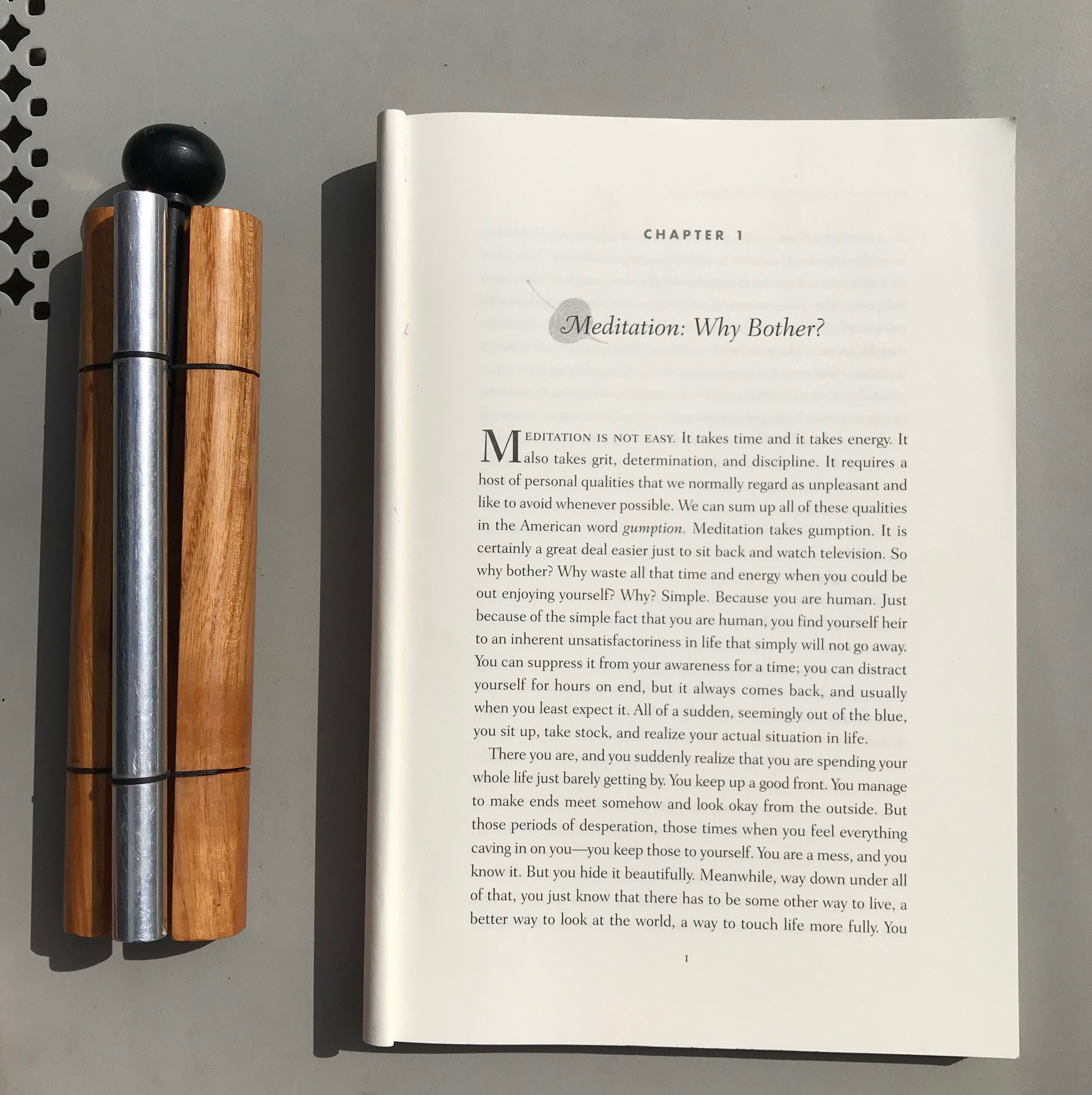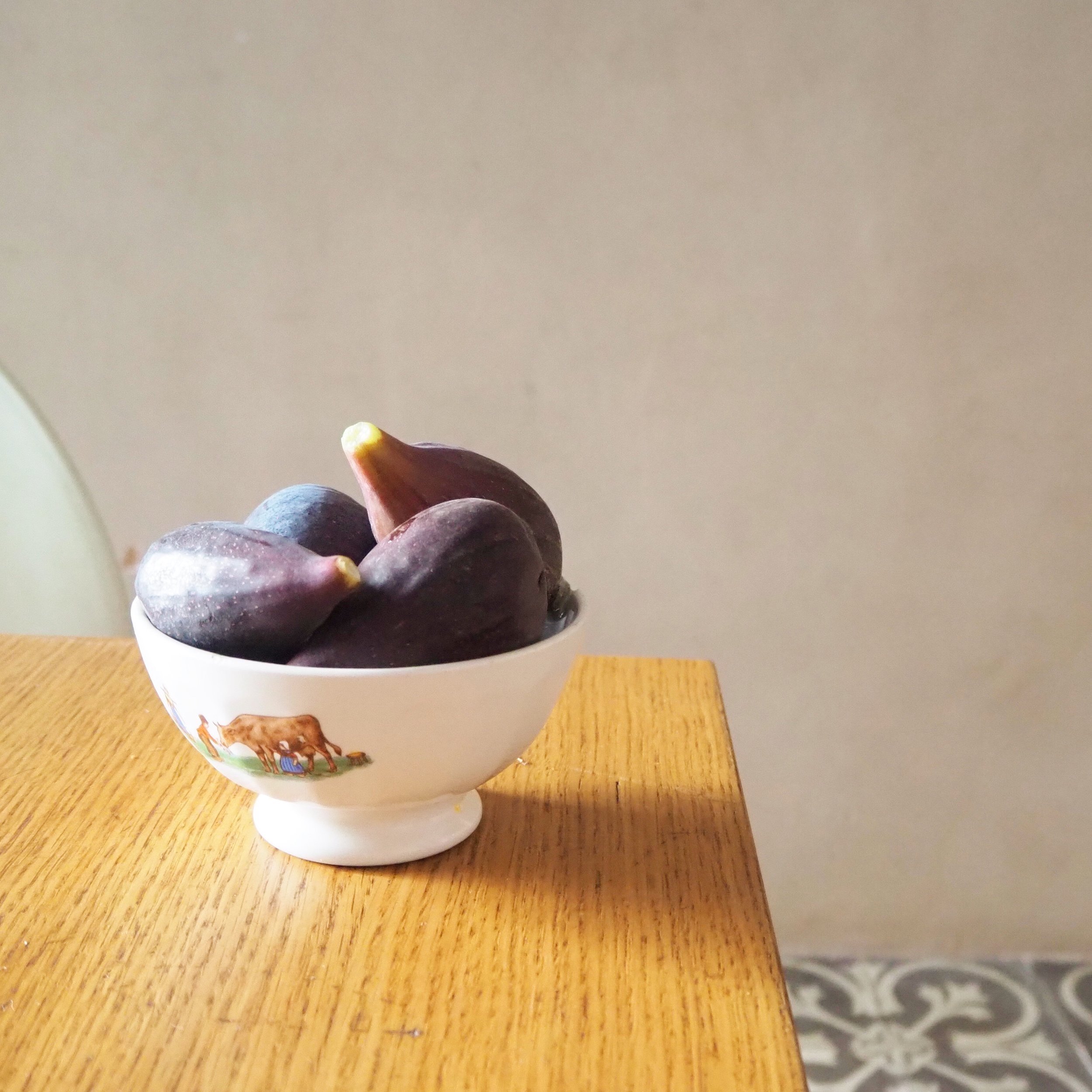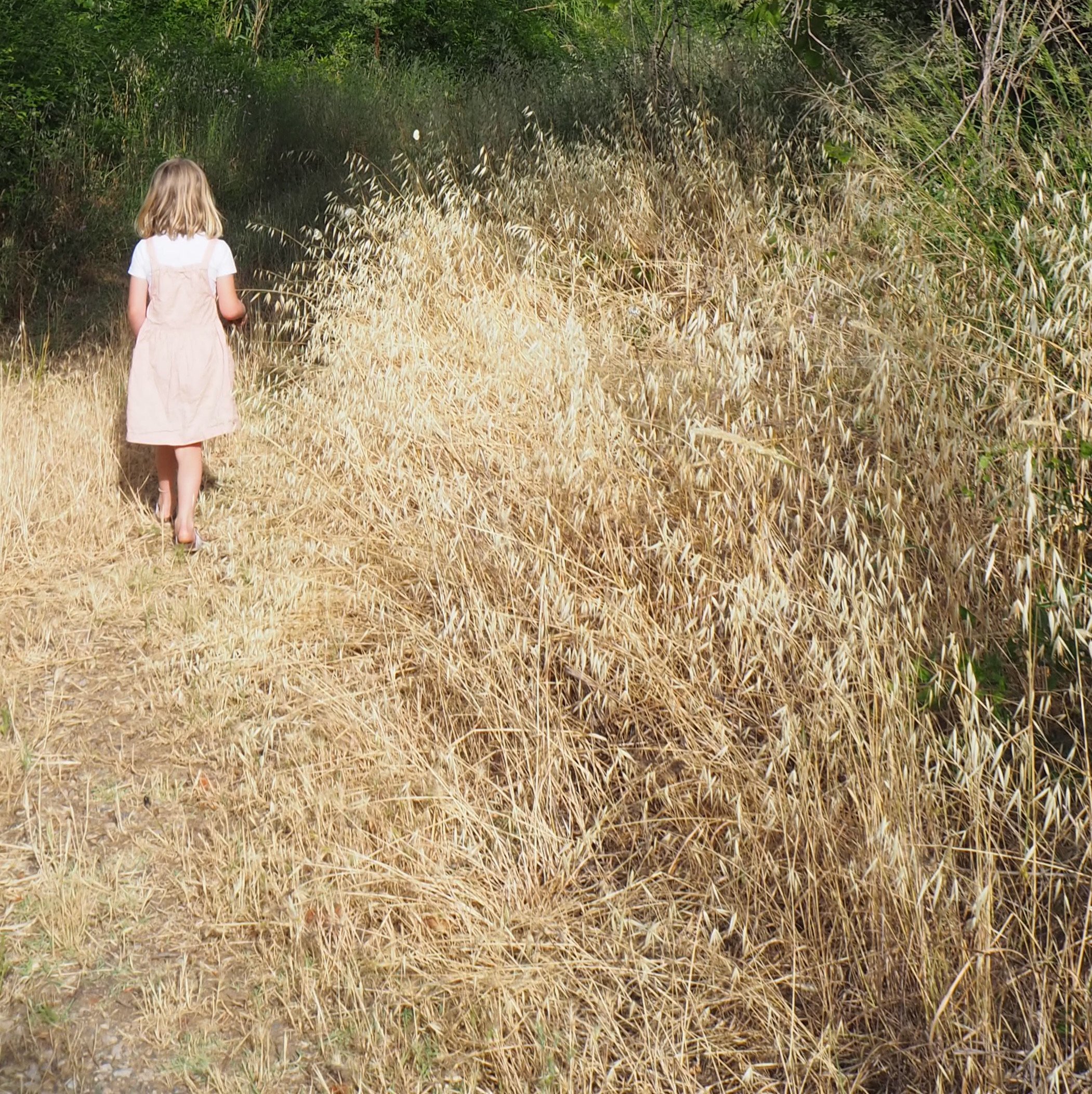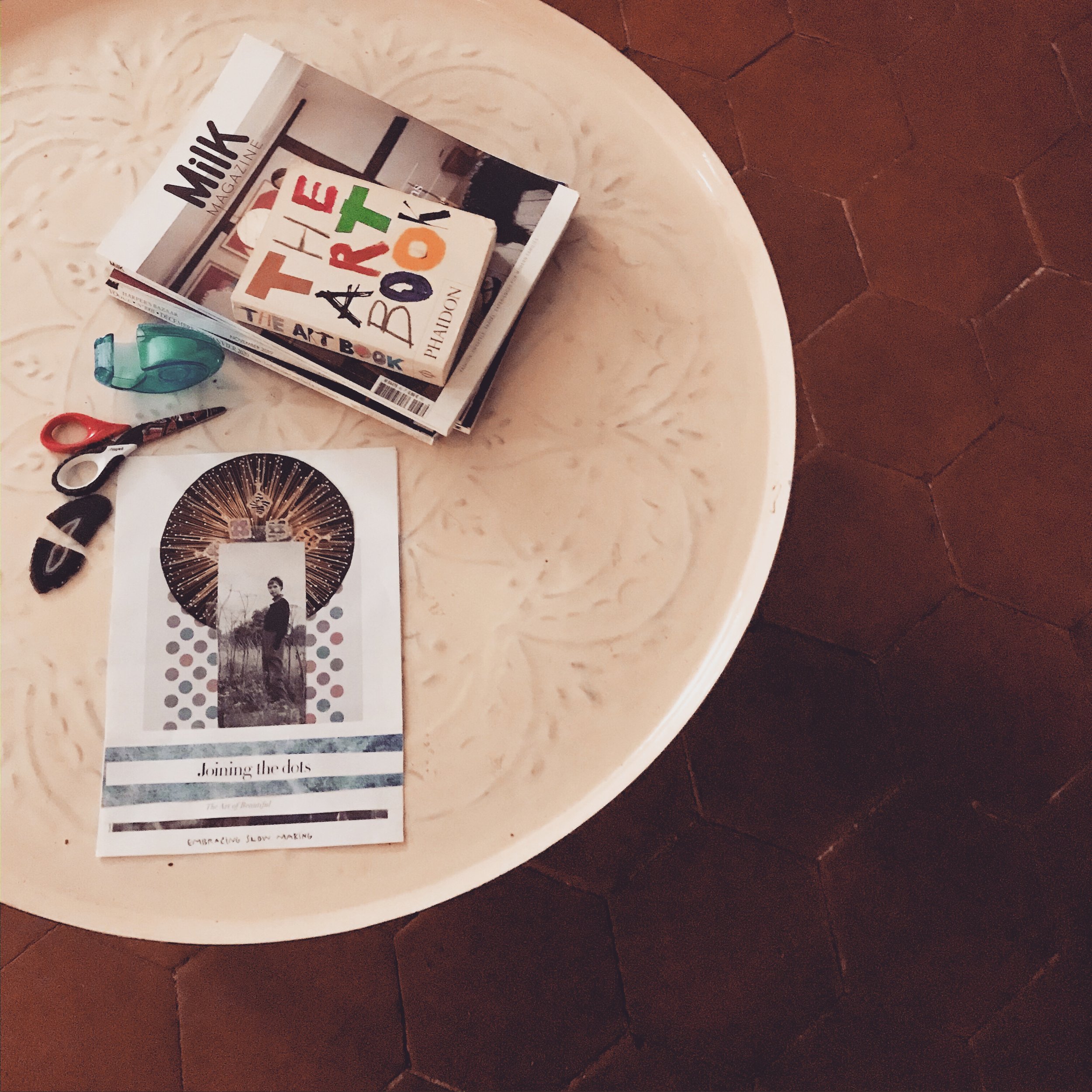Josephine Dolan-Dufourd BSc/OT
APE: 8690E -SIRET: 88454417200015 | RPPS: 10008041849
How we spend our moments, is how we spend our days and this in turn becomes how we spend our lives
Josephine Dolan-Dufourd
Welcome
I’m a British trained Occupational Therapist registered in France (érgothérapeute) with over 25 years experience. I have a passion for human connection, creativity and care. The Wellbeing Atelier is my space to offer thoughtful, accessible support rooted in both clinical practice and lived experience.
Occupational Therapists are health professionals who have expertise in facilitating and supporting people to solve practical problems in everyday life. I support clients to engage in the activities, roles and processes that enable them to live a meaningful life as individuals, groups, and the communities to which they participate and contribute within.
What I Offer
Tailored 1:1 occupational therapy sessions (in-person & online)
Strategies for energy management, sensory processing, and daily routine
Creative and reflective approaches to everyday wellbeing
Collaborations with individuals, families, and healthcare teams
Let’s find what works for you.
Approaches & Training
The range of models and approaches drawn on at the Wellbeing Atelier include, but are not exclusively, the following:
The Model of Human Occupation
Also known as MOHO, this Occupational Therapy model of practice is a range of assessments, intervention and assessment tools. It addresses people’s “motivations for occupations, the routine patterning of occupational behaviour, nature of skilled performance and the influence of the environment on occupation” (Keilhofner & Barrett, 1998, p. 527)
The Kawa River Model
Kawa is the Japanese word for ‘river’. The Kawa Model uses the natural metaphor of a river to depict one’s life journey. The varying and chronological experience of life is like a river, flowing from the highlands down to the ocean. Along its meandering path, the quality and character of its flow will vary from place to place, from instance to instance. Occupational therapists try to enable, assist, restore and maximize their clients’ life flow.
Teoh, J.Y. & Iwama, M.K. (2015) The Kawa Model Made Easy: A Guide to applying the Kawa Model in Occupational Therapy Practice (2nd edition). Retrieved from: www.kawamodel.com
Mindfulness Based Approaches
A combination of Mindfulness Based Stress Reduction (MBSR) and Mindfulness Based Cognitive Therapy (MBCT) is designed to help people who suffer chronic pain, repeated bouts of depression and unhappiness. It integrates cognitive therapy and meditative practices and attitudes based on the cultivation of mindfulness, exploring the science behind, the in-body connection and how to practice mind and body awareness. The heart of this work lies in becoming acquainted with the modes of mind that often characterise pain and mood disorders while simultaneously learning to develop a new relationship with them.
Compassion Focused Therapy
Compassion Focused Therapy (CFT) helps those who struggle with shame and self-criticism. CFT teaches clients to cultivate skills in compassion and self-compassion, which can help regulate mood and lead to feelings of safety, self-acceptance, and comfort. The technique builds on practices used within MBCT.
Sensory Processing
Understanding how you process sensory information can be a transformative part of occupational therapy. I use the Pearson Sensory Profile™ — a well-established assessment tool — to help identify how your nervous system responds to sights, sounds, touch, movement, and other everyday stimuli.
Sensory processing shapes how we feel, focus, connect, and cope. Some people are highly sensitive to input, others may seek it out, and many fluctuate depending on stress, environment or health.
Motivational Interviewing
Motivational Interviewing is a counselling method that helps people resolve ambivalent feelings and insecurities to find the internal motivation needed to change behaviours. It is a practical, empathetic and short-term process that takes into consideration how difficult it is to make changes.
Dialectical Behavioural Therapy (DBT)
DBT is a therapy often used to help people with depression, anxiety, borderline personality disorders, addictions, eating disorder, and PTSD. It supports in taking control of your thoughts, emotions and relationships through teaching four core skills of mindfulness, emotional regulation, distress tolerance and interpersonal effectiveness.
Mindfulness - the core skill in DBT is being able to non-judgmentally observe yourself and your surroundings. You will become more aware of the physical and mental triggers that cause runaway emotions.
Distress Tolerance - deal with painful situations. When you can't change the situation, learn how to tolerate it, accept it, and move forward.
Emotion Regulation - learning to make your emotions work for you. Learn to recognize when an emotion is unproductive and change it into a more productive emotion.
Interpersonal Skills - change the way you communicate so you get more out of your relationships. Learn to communicate what you want. Become comfortable saying no.
Currently only available for individual sessions.
Cognitive Behavioural Integrative Therapy (CBIT)
A modern therapeutic approach that combines principles of Cognitive Behavioural Therapy (CBT) with other therapeutic techniques to provide a more holistic treatment tailored to the individual. It is often used to address complex mental health issues by integrating various evidence-based approaches, aiming to adapt the treatment to the specific needs and preferences of the client.
